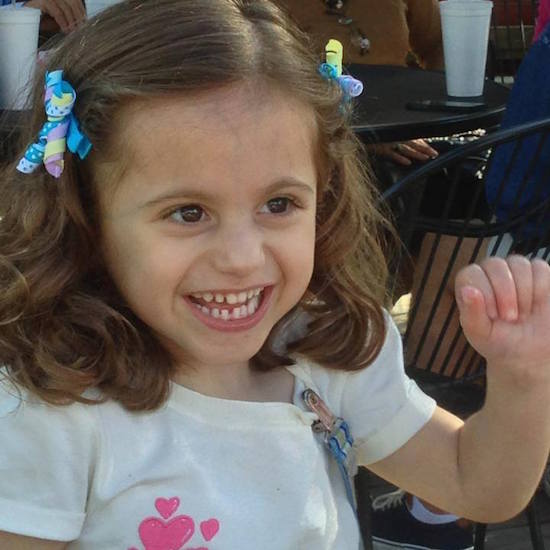My daughter, Caroline, is joyful, jovial, sweet and so smart. She’s also a nonverbal sensory seeker who flaps her arms and screams uncontrollably when she becomes excited or frustrated. Caroline has autism; she is not deaf and she is not without feelings.
I am Caroline’s mother, caretaker and biggest advocate. I am not deaf and I am not without feelings.
On more than one occasion a seemingly typical but curious adult has asked — within hearing distance of Caroline — “What is wrong with her?” My visceral response: “Nothing is wrong with her, but I question your upbringing and manners. And to be clear, when I say nothing is wrong with Caroline, I meant there was nothing wrong with her before she heard a total stranger ask: ‘What is wrong with her?’”
Caroline communicates using sign language, a communication device, a few words and gestures. She doesn’t really communicate her feelings other than to share that she’s mad when access to a preferred item or activity is denied. So I don’t know exactly how Caroline feels when she hears someone ask a question such as “What is wrong with her?” but I do know she hears it and understands what it means. And for that reason alone, I become enraged that a total stranger would feel it appropriate to express their curiosity in such an inappropriate manner. When inquiring about Caroline’s differences in such a thoughtless matter, that person is putting their idle curiosity before Caroline’s feelings and mine.
I would much rather someone ask about Caroline’s behaviors than simply stare at her, but the questions need to be worded in a way that’s not hurtful. For instance, instead of “What’s wrong with her?” ask “Why does she flap like that?” Or when Caroline is jumping up and down, screaming and flapping, I’ve had other moms ask with concern if those are happy screams. To which I generally respond with a smile and, “Yes, those are very happy screams. Caroline has autism and she absolutely loves the pool. What are you are seeing right now is Caroline expressing pure joy. Thank you for asking.”
It’s normal to be curious. But when one assumes that something is wrong with another because they act differently, it’s thoughtless. Caroline would not be the person she is, the person I love, if she did not have autism. When I look at Caroline, I don’t see a bunch of “strange” behaviors related to autism — I see my wonderful, hard-working daughter who overcomes countless challenges every day. So, no, there is nothing “wrong with her”; she is simply amazing.
She’s different, not less.
Follow this journey on Failure to Thrive or Ability to Overcome?
The Mighty is asking the following: Describe a moment you were met with extreme negativity or adversity related to your disability and/or disease (or a loved one’s) and why you were proud of your response — or how you wish you could’ve responded. If you’d like to participate, please send a blog post to community@themighty.com. Please include a photo for the piece, a photo of yourself and 1-2 sentence bio. Check out our Share Your Story page for more about our submission guidelines.

